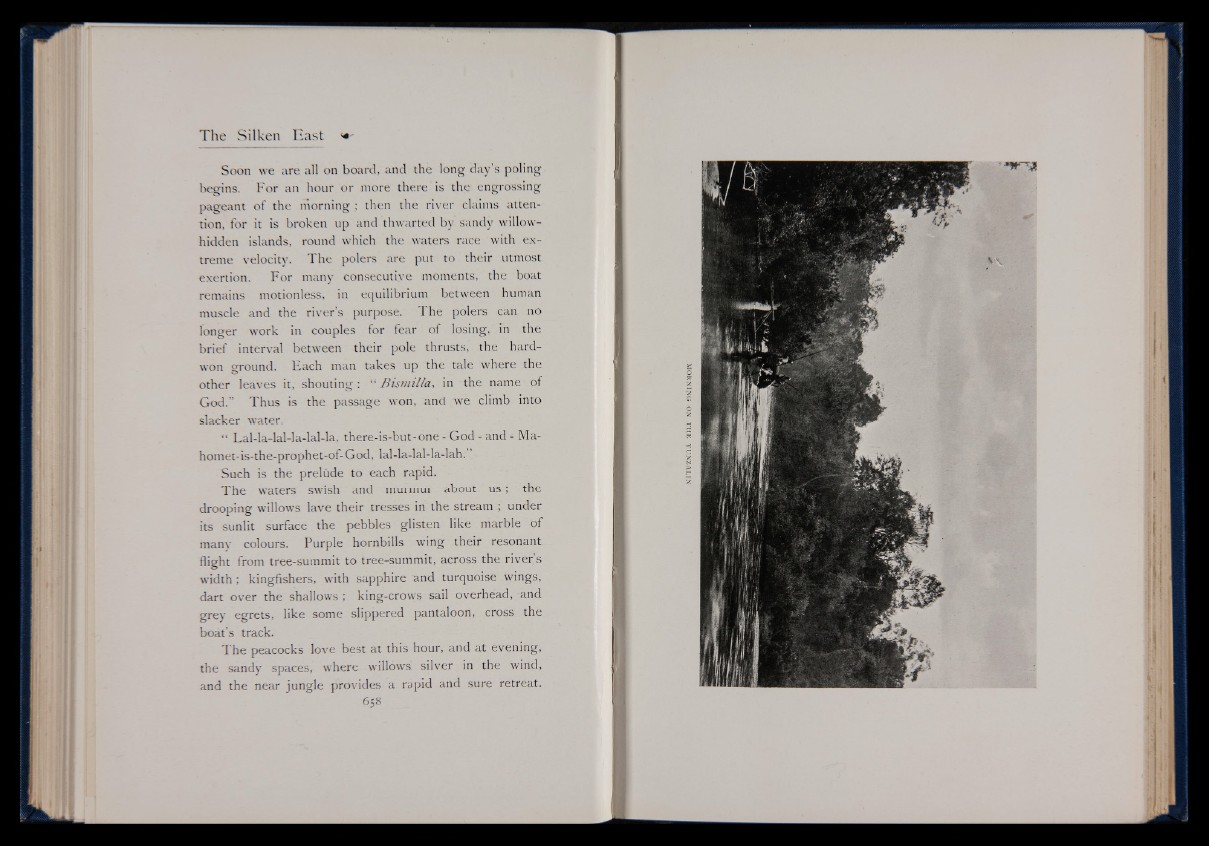
Soon we are all on board, and the long day’s poling
begins. For an hour or more there is the engrossing
pageant of the morning ; then the river claims attention,
for it is broken up and thwarted by sandy willow-
hidden islands, round which the waters race with extreme
velocity. 1 he polers are put to their utmost
exertion. For many consecutive moments, the boat
remains motionless, in equilibrium between human
muscle and the river’s purpose. The polers can no
longer work in couples for fear of losing, in the
brief interval between their pole thrusts, the hard-
won ground. Each man takes up the tale where the
other leaves it, shouting: “ Bismilla, in the name of
God.” Thus is the passage won, and we climb into
slacker water.
“ Lal-la-lal-la-lal-la, there-is-but-one - God - and - Ma-
homet-is-the-prophet-of-God, lal-la-lal-la-lah. ’
Such is the prelude to each rapid.
The waters swish and murmur about us ; the
drooping willows lave their tresses in the stream ; under
its sunlit surface the pebbles glisten like marble of
many colours. Purple hornbills wing their resonant
flight from tree-summit to tree-summit, across the river s
width ; kingfishers, with sapphire and turquoise wings,
dart over the shallows ; king-crows sail overhead, -and
grey egrets, like some slippered pantaloon, cross the
boat’s track.
The peacocks love best at this hour, and at evening,
the sandy spaces, where willows silver in the wind,
and the near jungle provides a rapid and sure retreat.
658